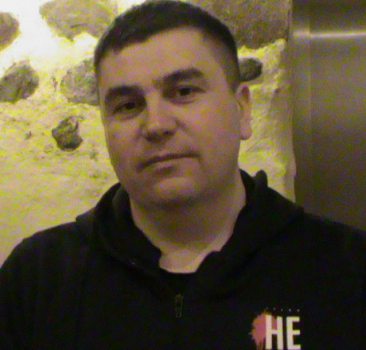Andrei Paluda: Crime must not be deterred through the death penalty, but through ban on cheap alcohol
Talking to reporters during a press conference on 28 January, President Aliaksandr Lukashenka spoke emotionally about the death penalty. In particular, he mentioned several recent crimes that received a wide media and public coverage: “I am increasingly attracted by the fact that a person must be put against a wall for murder. It happens in different ways: life is life... By recklessness, somehow else. But what right do you have to live, if you took the life of this man. At the same time, when it comes to the helpless, the children. For example, a husband recently killed his wife, slashed his family and cut his child, forgive me that. Sat in his car and killed someone else out there. What right, you scoundrel, have to continue to exist? This is for good, nobody can move it. This is my attitude. I do not press the courts, but I express this position... If you killed, dismembered with your mother, cut into pieces and buried somewhere. Attitude is the same, against a wall... This should not be forgiven.”
In addition, the President said he would always defend this position.
“We had a referendum that resolved this issue. It is not for us to decide. The people expressed their opinion. That’s perhaps because of this too that these crimes are not so violent here,” said the head of state.
Commenting on Aliaksandr Lukashenka’s recent statements, coordinator of the campaign “Human Rights Defenders against the Death Penalty” Andrei Paluda stressed that such words were not new to the public.
“His position on the death penalty has been voiced several times, which was only confirmed by this press conference. As for his remarks about the recent criminal cases, you should be aware that the charges under Part 1 of Article 139 of the Criminal Code brought against the murderer of Yuliya Salamatsina (it is this very crime that President meant) do not provide for the death penalty. As well as the tragic case in Minsk’s Hai Street. The man who has committed the crime and the accident can avoid criminal punishment if he is recognized mentally sick. He has returned after a survey in a psychiatric hospital back to jail. But the results of the examination have not yet been officially disclosed.
But, to be honest, I would not be surprised if they can amend the current legislation, which is often done in recent years, and thus extend the use of the death penalty, as it was practiced in the Soviet times.
Most alarming for me in the President’s comments was the assumption that the President still believes that the death penalty is a deterrent. He believes that because of the death penalty “crimes are not so violent” in the country. We can recall that in the 1990s dozens of executions were carried out annually, but the crime rate nevertheless remained high. Now the number of such sentences is reduced to 2-3 cases per year, and there are fewer grave crimes, too. Taking part in all sorts of conferences with the participation of government experts, lawyers, professors of the Police Academy, I could see that they are well aware that the death penalty is not a deterrent. It is this information that is worth conveying to the leadership of our country.”
Andrei Paluda says that the prevention of grave crimes is an issue of socio-economic nature.
“It is much more important, in my opinion, to do preventive maintenance of grave and resonant crimes committed while intoxicated, which we see in the murder of Yuliya Salamatsina. The state must first of all think about not how to earn easy money on the sale of cheap alcohol, but how to best influence the prevention of such crimes, and not through the presence of the death penalty, but through the restriction of the sale of cheap alcohol.”
Andrei Paluda says the President’s words also feature certain pressure on justice, drawing a parallel with the words of the head of state and his former hard saying during a meeting with the Prosecutor General, when they talked about a retrial in the murder case of Aliaksandr Hrunou, who was repeatedly sentenced to death by the Homel Regional Court and eventually executed.


